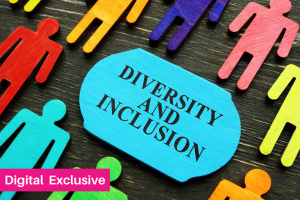Introduction
In the realm of education, the role of Human Resource Jobs in Education is often overlooked. Yet, it’s the driving force behind nurturing talents, fostering growth, and creating conducive environments for both educators and learners. This article delves deep into the pivotal role of HR in educational settings, exploring its significance, challenges, and innovative practices that shape the future of education.
Unveiling the Significance of HR in Education
Human Resource Jobs in Education are the backbone of any institution, and educational settings are no exception. From recruiting competent faculty to ensuring staff development and implementing effective policies, HR professionals are instrumental in driving organizational success. In educational institutions, HR plays a multifaceted role:
Recruitment and Retention Strategies

Attracting and retaining top talent is crucial for the success of educational institutions. Human Resource Jobs in Education professionals devise comprehensive recruitment strategies to identify individuals who align with the institution’s values and objectives. Moreover, they implement retention programs, ensuring faculty and staff feel valued and supported in their roles.
Staff Development and Training
Continuous professional development is essential for educators to stay abreast of evolving pedagogical approaches and technologies. Human Resource Jobs in Education departments design and facilitate training programs that empower educators to enhance their skills and adapt to changing educational landscapes.
Creating Inclusive and Supportive Environments
Human Resource Jobs in Education initiatives contribute to fostering inclusive and supportive environments where diversity is celebrated, and every individual feels respected and valued. From implementing anti-bullying policies to promoting cultural awareness, HR professionals play a pivotal role in nurturing a positive organizational culture.
Policy Implementation and Compliance

Educational institutions are bound by various regulations and policies governing areas such as safety, equity, and accreditation. Human Resource Jobs in Education departments ensure compliance with these regulations by developing and implementing policies that safeguard the well-being of students and staff while upholding institutional standards.
Navigating Challenges in HR Management
Despite its significance, HR management in educational settings presents unique challenges that require innovative solutions. Understanding and addressing these challenges are imperative for creating thriving educational environments:
Budget Constraints and Resource Allocation
Educational institutions often face budget constraints, limiting their ability to invest in HR initiatives. Human Resource Jobs in Education professionals must navigate these constraints creatively, leveraging available resources to maximize impact.
Navigating Technological Advancements
Technological advancements have transformed the educational landscape, presenting both opportunities and challenges for HR professionals. From implementing learning management systems to leveraging data analytics for decision-making, HR departments must adapt to technological changes to remain effective.
Addressing Diversity and Inclusion

Promoting diversity and inclusion is a top priority for educational institutions. HR departments play a crucial role in fostering environments where every individual feels valued and respected regardless of their background or identity.
Innovative Practices Shaping the Future
In an ever-evolving educational landscape, Human Resource Jobs in Education professionals are at the forefront of driving innovation and change. By embracing forward-thinking practices, they pave the way for a brighter future:
Flexible Work Arrangements
The traditional nine-to-five model no longer aligns with the needs of modern educators. HR departments are increasingly adopting flexible work arrangements, allowing staff to balance professional responsibilities with personal commitments.
Embracing Remote Learning
The COVID-19 pandemic accelerated the adoption of remote learning technologies, prompting educational institutions to rethink their approaches. HR professionals play a vital role in supporting educators through this transition, providing training and resources to facilitate effective remote teaching.
Promoting Work-Life Balance

Burnout is a prevalent issue among educators, highlighting the importance of promoting work-life balance. Human Resource Jobs in Education initiatives such as wellness programs and mental health support services contribute to creating environments where staff can thrive both personally and professionally.
Shaping Futures: Human Resources in Educational Settings
The future of education hinges on the effectiveness of HR practices in shaping organizational culture, fostering innovation, and empowering educators. By prioritizing recruitment, staff development, and inclusive policies, educational institutions can create environments where every individual has the opportunity to thrive.
Conclusion
Human resources are the cornerstone of educational institutions, shaping the future by nurturing talent, fostering innovation, and creating inclusive environments. By prioritizing effective HR practices, educational settings can cultivate environments where every individual has the opportunity to thrive academically and professionally.
FAQs
How does HR contribute to student success?
HR professionals play a vital role in creating supportive environments where students feel safe, valued, and empowered to learn.
What challenges do HR departments face in educational settings?
Budget constraints, technological advancements, and diversity issues are among the key challenges HR departments navigate in educational settings.
How can educational institutions promote diversity and inclusion?
Educational institutions can promote diversity and inclusion through proactive recruitment strategies, cultural competency training, and the implementation of inclusive policies.
What role does technology play in HR management in education?
Technology facilitates HR processes such as recruitment, training, and performance management, enabling more efficient and data-driven decision-making.
How can HR departments support educators during transitions such as remote learning?
HR departments can support educators during transitions by providing training, resources, and emotional support to navigate challenges effectively.
What are some innovative HR practices shaping the future of education?
Flexible work arrangements, remote learning support, and wellness programs are some of the innovative HR practices transforming educational settings.










